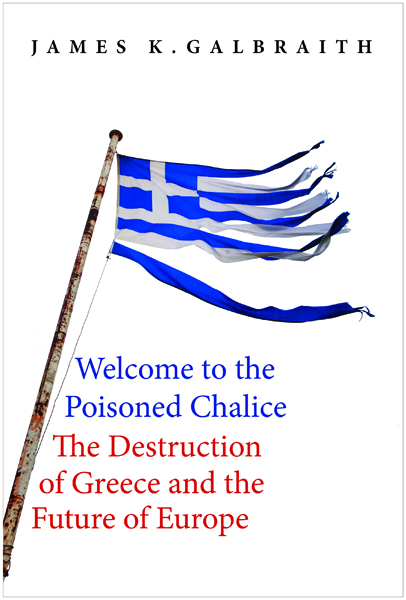
Open letter on the attempted coup in Turkey
Brussels, 23 July 2016
To: Ms Federica Mogherini, High Representative of the Union for Foreign Affairs and Security Policy / Vice-President of the Commission
To: Mr Thorbjørn Jagland, Secretary General of the Council of Europe.
Dear HR/VP Federica Mogherini,
Dear Secretary General Thorbjørn Jagland,
On Friday 15 July, Turkey experienced an attempted coup, which has resulted in more than 200 victims, mostly civilians, and more than 1400 wounded. Immediately after the failed coup, the Turkish Government started a massive, totally disproportionate purge within the State apparatus. Since the day of the coup, as of 20 July 2016, the total number of purges (suspension from duty and arrests) in public services has totalled more than 61,000 people. The following sectors have been in particular purged: Ministry of Justice (2875 judges and prosecutors), Prime Ministry (257 personnel), Interior Ministry (8,777 police officers, gendarmerie, province governors, local governors and staff), National Education Ministry (21,738 personnel suspended), Higher Education Council (116 professors, including 4 rectors, + 1577 university deans asked to resign), Minister of the Family and Social Policies (393 civil servants), Finance Ministry (1500 personnel), National Intelligence Service (100 personnel), Turkish Energy Regulatory Market (25 personnel). Development Ministry (16 personnel), Ministry of Forestry and Water Management (197 personnel), Ministry of Energy and Natural Resources (300 personnel), Ministry of Youth and Sports (245 personnel), Ministry of Environment and Urbanization (70 personnel), Radio Television Supreme Council (29 personnel), Banking Regulation and Supervision Agency (86 personnel), Ministry of Customs and Trade (176 personnel), Competition Authority (8 personnel), Military Court of Appeals (35 personnel), Defence Ministry (7 personnel), Istanbul Stock Market (51 personnel).
21,000 teaching licences in private institutions have been revoked.
It is likely that academics will come next. Thousands of academics had already been under investigation on grounds that they were “supporting” terrorist activity for having defended the Kurdish populations in South East Turkey, under extensive and lethal attack by Turkish regular forces over the past year.
According to several sources – among them Commissioner for Neighbourhood and Enlargement Negotiations Johannes Hahn – the lists of people to arrest were ready before the coup even started. Some of these sources maintain the coup was staged as extrema ratio against these lists.
The Turkish Prime Minister has suspended the annual leave of more than three million civil servants nationwide, and public sector employees are also banned from travelling abroad.
Moreover, following an interview with CNN on 18 July 2016, Turkish President Recep Tayyip Erdoğan has not ruled out the possibility of bringing back the death penalty in Turkey. In the meantime, the state of emergency has been proclaimed by the Government, together with the temporary suspension of the European Convention on Human Rights, as permitted by article 15 of the ECHR. The same article does not imply the disrespect of fundamental principles enshrined in the Convention.
There are no checks and balances left. There are reports that those taken under custody cannot find lawyers, since no one would dare defend them and become part of the purge list.
Turkey is a signatory of the European Convention on Human Rights and of Protocol n. 6 to the ECHR concerning the Abolition of the Death Penalty. As a candidate country for accession to the EU, Turkey has also committed itself to the full observance of the Copenhagen criteria, including stability of institutions guaranteeing democracy, the rule of law, human rights and respect for and protection of minorities, abolition of capital punishment.
We, the undersigned, condemn any attempt to overturn the democratic order by military coups. At the same time, we condemn the purge undertaken by the Turkish Government in violations of human rights and the rule of law. The principle of independence and impartiality of the judiciary – together with freedom of the media – is at the foundation of the rule of law and democracy. The political independence of the educational profession is essential for free societies.
We call on the HR/VP Federica Mogherini, as well as the Secretary General of the Council of Europe, Thorbjørn Jagland, to closely monitor the situation in Turkey, as far as the respect for human rights and the rule of law is concerned, and ask for the immediate release of all those arbitrarily arrested and detained in the wake of the failed military coup.
We recall the recent bill adopted by the Turkish Parliament regarding the waiver of immunity from prosecution of several MPs, belonging mostly to the opposition party HDP. All the evidence seems to suggest that the coup represents an opportunity for the Turkish government to further restrict the role of the oppositions and their function of democratic oversight. Shortly after arriving in Istanbul, early Saturday morning, Mr Erdogan said in a statement: “This insurgency is a blessing from Allah, because it will allow us to purge the military” of mutineers.
We call therefore on the HR/VP Mogherini to scrutinise the situation, paying particular attention to the condition of the Kurdish minority and other minorities in the country. We urge as well Secretary General Thorbjørn Jagland to remind the Turkish government of its obligation to respect the European Convention on Human Rights and all its protocols, including the right to life, to fair trials, to protection from arbitrary arrests.
We also urge the HR/VP Mogherini to demand the European Council to withdraw immediately the EU-Turkey Agreement, signed on 18 March 2016, in the light of the recent developments. Since the signature of the Agreement, Turkey has not been a “safe country” for refugees and asylum-seekers.
Finally, we request all the EU Member States to fully engage with the Turkish government in order to reinstate completely the rule of law and the democratic principles in the country as a basic condition for future diplomatic relationships and the continuation of the accession negotiations.
Best regards,
Barbara Spinelli – Member of the European Parliament, GUE/NGL Group
Albena Azmanova – Associate Professor of Political and Social Thought. Director, postgraduate programmes Political Strategy and Communication and International Political Economy University of Kent, Brussels School of International Studies
Étienne Balibar – Professor Emeritus (philosophy), University of Paris-Ouest, Anniversary Chair in Modern European Philosophy, Kingston University London
Seyla Benhabib – Eugene Mayer Professor of Political Science and Philosophy at Yale University
Sophie Bessis – Historian, Tunisia-France
Hamit Bozarslan – Historian and political scientist, Ecole des Hautes Etudes en Sciences Sociales (EHESS), Paris
Susan Buck-Morss – Political Philosopher, CUNY Graduate Center, NYC
Judith Butler – Maxine Elliot Professor of Comparative Literature and Critical Theory, University of California, Berkeley
Claude Calame – Historian and anthropologist, Ecole des Hautes Etudes en Sciences Sociales (EHESS), Paris
Joseph H. Carens – FRSC Professor of Political Science University of Toronto
Maeve Cooke – Member of the Royal Irish Academy, Professor of Philosophy, University College Dublin
Vincent Duclert – Historian at Ecole des hautes études en sciences sociales, France
Didier Fassin – Professor of social sciences, Institute for Advanced Study, Princeton
Éric Fassin – Professor of sociology, Paris-8 University
Shelley Feldman – International Professor, Cornell University
Peter Geschiere – Emeritus professor of anthropology, University of Amsterdam and Leiden University, NL
Michael Hardt – Professor, Duke University, USA
David Harvey – Distinguished Professor, Graduate Center of the City University of New York
Marianne Hirsch – William Peterfield Trent Professor of English and Comparative Literature at Columbia University and Director of the Institute for Research on Women, Gender and Sexuality
Philip Hogh – Philosophy Department, Carl von Ossietzky University Oldenburg
Jean E. Howard – George Delacorte Professor in the Humanities, Department of English and Comparative Literature, Columbia University
Julia Koenig – Institute for Social Pedagogy and Adult Education, Goethe University, Frankfurt am Main
Elena Loizidou – Reader in Law and Political Theory at School of Law, Birkbeck, University of London
Sandro Mezzadra – Professor of political theory at the University of Bologna
Jennifer Nedelsky – Faculty of Law and Political Science, University of Toronto
Rosalind Petchesky – Distinguished Professor Emerita of Political Science Hunter College & the Graduate Center, City University of New York
Ilaria Possenti – Research fellow in political philosophy, University of Verona, Italy
Mary Louise Pratt – Silver Professor, Professor Emerita of Social and Cultural Analysis, Spanish & Portuguese, Comparative Literature, New York University
Lynne Segal – Anniversary Professor, Psychosocial Studies, Birkbeck College, University of London
Vicky Skoumbi – Editor in chief of the Greek Journal αληthεια
Céline Spector – Professor at the Department of Philosophy of the Université Bordeaux Montaigne, honorary member of the Institut Universitaire de France
Yanis Varoufakis – Professor of Economic Theory at the University of Athens, former Finance Minister and Member of Parliament, Greece
Frieder Otto Wolf – Freie Universität Berlin, Former Member of the European Parliament
Vladimiro Zagrebelsky – Former Judge of the European Court of Human Rights
François Alfonsi – President of the European Free Alliance (EFA)
Brando Benifei – Member of the European Parliament, S&D Group
José Bové – Member of the European Parliament, Greens/EFA Group
Nicola Caputo – Member of the European Parliament, S&D Group
Fabio Massimo Castaldo – Member of the European Parliament, EFDD Group-M5S
Fabio De Masi – Member of the European Parliament, GUE/NGL Group
Karima Delli – Member of the European Parliament, Greens/EFA Group
Pascal Durand – Member of the European Parliament, Greens/EFA Group
José Inácio Faria – Member of the European Parliament, ALDE Group
Eleonora Forenza – Member of the European Parliament, GUE/NGL Group
María Teresa Giménez Barbat – Member of the European Parliament, ALDE Group
Ana Maria Gomes – Member of the European Parliament, S&D Group
Tania González Peñas – Member of the European Parliament, GUE/NGL Group
Yannick Jadot – Member of the European Parliament, Greens/EFA Group
Benedek Jávor – Member of the European Parliament, Greens/EFA Group
Eva Joly – Member of the European Parliament, Greens/EFA Group
Josu Juaristi Abaunz – Member of the European Parliament, GUE/NGL Group
Jude Kirton-Darling – Member of the European Parliament, S&D Group
Stelios Kouloglou – Member of the European Parliament, GUE/NGL Group
Merja Kyllönen – Member of the European Parliament, GUE/NGL Group
Patrick Le Hyaric – Member of the European Parliament, GUE/NGL Group
Paloma López Bermejo – Member of the European Parliament, GUE/NGL Group
Lorena Lopez de Lacalle – Treasurer of the European Free Alliance (EFA)
Marisa Matias – Member of the European Parliament, GUE/NGL Group
Stefano Maullu – Member of the European Parliament, EPP Group
Marlene Mizzi – Member of the European Parliament, S&D Group
Ulrike Müller – Member of the European Parliament, ALDE Group
Javier Nart – Member of the European Parliament, ALDE Group
Carolina Punset – Member of the European Parliament, ALDE Group
Michèle Rivasi – Member of the European Parliament, Greens/EFA Group
Sofia Sakorafa – Member of the European Parliament, GUE/NGL Group
Elly Schlein – Member of the European Parliament, S&D Group
Helmut Scholz – Member of the European Parliament, GUE/NGL Group
Branislav Škripek – Member of the European Parliament, ECR Group
Jordi Sole – Secretary General of the European Free Alliance (EFA)
Bart Staes – Member of the European Parliament, Greens/EFA Group
Dario Tamburrano – Member of the European Parliament, EFDD Group-M5S
Miguel Urbán Crespo – Member of the European Parliament, GUE/NGL Group
Pello Urizar – Secretary General of Eusko Alkartasuna (Basque political party)
Ernest Urtasun – Member of the European Parliament, Greens/EFA Group
Monika Vana – Member of the European Parliament, Greens/EFA Group
Marie-Christine Vergiat – Member of the European Parliament, GUE/NGL Group
Julie Ward – Member of the European Parliament, S&D Group
Tatjana Ždanoka – Member of the European Parliament, Greens/EFA Group

Who was planning a coup?
This article by Tom Strohschneider was first published in the German newspaper Neues Deutschland. Read the original.
In Athens, the opposition is currently trying to suck political honey out of a story that is actually already old hat: before and during the “Greek Spring”, the SYRIZA-led government made preparations for the possibility of a forced exit from the Eurozone. Now however, critics even speak of a “coup that never happened“. Why now?
Because the advisor of the former Finance Minister Yanis Varoufakis, American economist James K. Galbraith, has just published a book which deals, among other things, with the famous “Plan X”. The leftist government of Greece wanted to use this plan to prepare for what the political right and neoliberals all over Europe were demanding: Grexit. Not freely, but as a measure that should hit Athens hard.
We later saw how right Greece was to explore, as far as possible, what would happen in case of Grexit and how to react. Exactly one year ago, just before the critical Brussels summit on a new loan program, the German Finance Ministry circulated a discussion paper threatening Greece with expulsion from the euro. The social, economic and political consequences would have been severe.
There were some in the leftist party SYRIZA who speculated with the idea of exit from the common currency. But no one really at the top in Athens wanted to push such a highly dangerous step or go about it himself. The deliberations on how to respond to a forced Grexit were made in secret – no wonder considering the potential consequences of it becoming known: even more uncertainty among savers and businesses, the possible reactions of financial speculators and so on.
“Revolt against the Euro”: But by whom?
In the summer of 2015, excerpts were released from a telephone conference recording in which Yanis Varoufakis talked about some of these theoretical scenarios. A Europe-wide storm of indignant headlines broke loose. The then newly-retired finance minister was even reported for treason. Newspapers wrote about a “Grexit hack” and a “drachma coup” at that time; things were mixed that didn’t fit together just to promote one message: that the leftist Greek government was planning a “revolt against the Euro”.
At that time, Varoufakis had already revealed that which should not be a surprise and even less a scandal. In one of the first interviews after his resignation, he reported that a “small group” had “worked out on paper” what “may have to be done in that case [of Grexit]”. A group of experts who met between March and May, partly under conspiratorial circumstances, finally delivered a long report to Greece’s finance minister.
Incidentally, Varoufakis and Galbraith were not the only ones pondering the possible consequences of a Grexit. The National Bank of Greece, finance ministries of various eurozone countries, and international organizations all pondered it – and not just after SYRIZA came into power.
However, because Varoufakis embodied that which public opinion had been criticising throughout Europe since January 2015 – an anti-politician, an intellectual in office, an economist who was suddenly faced with the business of politics – this finance minister remained the center of indignant headlines until just a few months ago. But now that Varoufakis has founded a movement to continue his fight for solidarity in Europe, the opposition in Greece is attempting to blame Tsipras himself for defending against Grexit.
How the Greek opposition is exploiting the “secret plan”
Just recently the conservative party Nea Dimokratia has renewed its call for a parliamentary inquiry. The leader of the socialist party Pasok, Fofi Gennimata, is calling for an official investigation of the “secret plan”. And even within SYRIZA, the excitement is not much smaller. Vice Finance Minister Giorgos Houliarakis attacked Galbraith in parliament last week – apparently he saw himself on the defensive. Ex-SYRIZA MP Panagiotis Lafazanis, who now leads the unsuccessful split-off party Popular Unity, criticised “Plan X” from his perspective: that Tsipras’ government had never had a real plan – neither for Grexit nor for negotiations with the creditors.
The fact that the verbal attacks now mainly turn against Tsipras is not just because Varoufakis is no longer a member of the Greek government, but also because of the publication of Galbraith’s book. In it, there is no hint that Prime Minister Tsipras also knew about the Grexit workgroup. However, the US economist wrote a short article for Varoufakis’ European movement DiEM25 pointing out that the “the preparation of a preliminary plan” (for the event that Greece is forced out of the euro) was “requested by the Prime Minister”. Since then, the opponents of SYRIZA have sensed an opportunity for political gain from this issue.
Tsipras’ hint: just ask in Berlin
The debate in Greece, however, has a large gap: the role of the German government. Incidentally, it was Tsipras himself who pointed this out last year. In July 2015, defending Varoufakis, who had again been in the crossfire, the Prime Minister gave the crucial clue: “Ask the government in Berlin. They will tell you what kind of plan that is.”
It is one thing for German politicians to have been among those repeatedly demanding Grexit after SYRIZA’s electoral victory. It is quite another for the German finance ministry to have blackmailed the Greek government with a semi-official paper putting Grexit on the negotiating table.
What then came out of Wolfgang Schäuble’s office was designed to
1. obliterate a compromise proposal from Athens
2. keep the International Monetary Fund on board for a new loan program
3. place the SYRIZA-led government in front of the “either or” decision. Either Tsipras had essentially to submit to the demands of the creditors, or they would “offer Greece swift negotiations on a time-out from the eurozone over at least the next five years”. What an offer.
A date one should still remember
When the discussion paper became known to the public on Saturday, 11 July 2015, it caused a medium-sized political earthquake – and that at a time when there was certainly no lack of historical events in terms of Greece and the euro crisis policy. Someone wrote on Twitter that one must remember the date: the German government threatened Athens with the alternative of either eviction from the euro or acceptance of the country’s complete sellout under foreign control. And it was clear, too: it was not a blunder that this paper reached the public eye. This is one of the characteristics of such discussion papers, or non-papers, as they are also known. Even if they do not officially exist, they naturally develop an official effect. Someone just has to want them to be known.
This discussion paper was instrumental in leading to the known consequences: in the night of 12-13 July 2015, after long nightly talks and under pressure from the Grexit threat, Prime Minister Tsipras accepted the third loan program, which came with severe conditions for Greece. Varoufakis would later speak of a moment of defeat; it was “the best possible result,” said the office of the Prime Minister at the time, trying to find a silver lining to the cloud.
The German role in the game against Athens, especially the role of the Grexit-threat and of the discussion paper, has hardly been investigated or evaluated. The SPD initially claimed not to have known anything – although Minister of Economy Sigmar Gabriel said something different. The opposition was outraged by the fact that the “proposal” for [at least] a temporary Grexit had been made in circumvention of parliament. Even Social Democrats expressed the valid fear that a withdrawal of Greece from the eurozone would have been the end of the common currency. The result was another – but this result, too, had severe consequences: for Greece.
Investigation? Almost none so far
Immediately after the Brussels summit, the German government presented the excuse that the discussion paper had been formulated in the event that “Greece had itself expressed a desire to take, for example, a time-out from the euro” – despite politicians in Athens having always and repeatedly declared their categorical wish to remain in the euro. Even today inconsistencies remain in the question of whether and when the Grexit option had really been discussed between the German ministers of finance and economy.
The German government has also brushed aside all criticism that the “Steffen-paper” (as it is sometimes called in the Greek press, referring to German Secretary of Finance, Thomas Steffen, the representative in the Euro Working Group, which prepares the meeting of ministers) had become a political lever against Greece bypassing the Bundestag. Remember that the discussion paper was presented to the Eurogroup on a Saturday and was only forwarded to the Bundestag on Sunday. According to the German government, it had been “not a negotiation document” in the sense of the laws detailing parliamentary participation requirements – so, according to the government there had been no need to inform parliament in advance.
The German government’s responses to some questions related to the discussion paper were very curt. Grexit? “Such a decision would have been a matter for the Greek government.” And why then the discussion paper? It “showed options for further action”. What did Gabriel really know? “The Federal Minister of Finance, Dr Wolfgang Schäuble, had conducted talks about options for Greece within the German government ahead of the Eurogroup meeting of 11 July 2015.“
“Be used as a way of pushing the Greek government”
The conservative Athens newspaper Kathimerini offered a glimpse of what could really be behind the thing. Already on 6 July 2015, almost a week before the Eurogroup meeting, Angela Merkel is said to have proposed the idea of a “five-year time-out from the Euro” for Greece in speaking to French President François Hollande. He had issued an unfavorable opinion that such a move would neither help Greece solve its problems, nor could one be certain that the “time-out” would remain temporary.
Kathimerini voices the suspicion that the idea of Grexit was also discussed on 9 July 2015 between Merkel, Vice-Chancellor Sigmar Gabriel and Foreign Minister Frank-Walter Steinmeier – as an instrument to push the government in Athens to accept a new loan program in line with the will of the creditors (“be used as a way of pushing the Greek government”). The next day, only 24 hours before the crucial Eurogroup meeting, the discussion paper was sent around to the representatives of the Euro Working Group. However, according to Kathimerini, the way that Finance Minister Schäuble used the Grexit threat to blackmail the government in Athens went beyond what had been agreed to by the heads of the governing coalition.
The newspaper’s source: a German government official who was familiar with the negotiations of the time. “What shocked us about the discussion paper was the way in which they laid down the conditions for Greece remaining in the eurozone. The conditions were so humiliating that they appeared to have the goal for Greece to reject them.” This would have resulted in Grexit.
So who here really pursued a “Plan B”? Looking back, Galbraith writes that it had not been the task of his working group to make recommendations for a euro exit. So they had not made any. “We prepared for a scenario that everyone hoped to be able to avoid.” The ones planning a coup were certainly not the Yanis Varoufakis group.

The banality of leaving the EU
by Lyndsey Stonebridge
Introduction by Yanis Varoufakis
One of the most unnerving feelings that I had during meetings with troika officials was the sense of indifference they conveyed regarding the issues at hand. During negotiations whose outcome would affect the lives and prospects of millions, they were clearly just going through the motions of a pre-fabricated strategy, quasi-bored, and with the kind of ‘excitement’ usually associated with gravediggers. I was reminded of this sensation, and of its connection with Hannah Arendt’s Banality of Evil masterpiece, when reading the piece below entitled The Banality of Leaving by Lyndsey Stonebridge – DiEM25er, friend and English Literature professor at the University of East Anglia.
Lyndesy’s point is that it is profoundly wrong of bitter Remainers to call Brexiters stupid. Referring to the Tory and UKIP leaders of the Brexit campaign, who invested in xenophobia and wooly arguments about national pride etc., she rejects even the claim that they were just spoilt private school kids indulging themselves. No, for Lyndsey Stonebridge these Tory boyish Brexiters were just banal!
—
Stupid. Men too stupid to think about the consequences of their actions tricked the British into making a fatally stupid decision. This is how Brexit is most commonly described. In the UK our stupid politicians tend to actually look stupid. It’s a clever, but dangerous deception. Boris Johnson, the boy with the flyaway hair and the love of a doting mother in his eyes, roaring and thumping the pride of Britain throughout the campaign, was left mouthing bland nothings the day after his success. On the same morning, buffoon-in-chief, Nigel Farage, he of the marionette jaw and the patent shoes patterned with the Union Jack flag, exulted: “And we’ll have won it, without a single bullet being fired.” Barely 24 hours earlier the body of Jo Cox MP had been released to her family; the coroner recorded three bullet wounds on her corpse.
This is a dark and dangerous stupidity, all the more pernicious for the way it is worn so lightly by its perpetrators and tolerated, sometimes even indulged, by the rest of us. Bereft educated remainers have taken to consoling themselves with their cleverness, collectively rolling their eyes at the stupidity of others. This is not only arrogant; it is also stupid. The stupidity that led the UK out of the EU, the easy idiocy that has unleashed hate and intolerance, economic and political instability, is in fact a banality that we need to take very seriously.
Weightless, rootless, banality creeps like fungus, sticking to everything. Often you don’t know it’s there until the furniture of politics goes clammy and starts to rot.
Boris and Farage take evident pleasure in performing their twitfuckery. By contrast, Adolf Eichmann thought of himself as a serious, even profound, man. This was why when the political philosopher, Hannah Arendt, travelled to Jerusalem to confront the Nazi specialist face-to-face, she burst out laughing. The man was a buffoon, a vain cardboard cut out of a person, unable to account for himself in anything other than clichés. Eichmann wasn’t banal simply because he was stupid, he was banal because he was radically thoughtless. The longer you listened to him, Arendt said, the more obvious it became that he was incapable of thinking from the standpoint of anyone else. He lacked the two-in-one dialogue with oneself, the classical Socratic definition of thought itself. It’s thoughtlessness not mere twittery, that is banal.
‘Remember thinking?’ asked a despairing former archbishop of England, Rowan Williams, at a meeting on anti-Semitism in Westminster days after Brexit. Arendt thought that thinking was the precondition of political judgment. Thinking is not politics, but politics needs thinking if it is to thrive. Without thought there can be no moral responsibility. This is an old Athenian idea; another piece of European heritage that Britain appears to have turned its back on.
Banality is not just being wrong, it is being radically indifferent to the world. The point when many people think the Leave campaign finally crossed the line was when Boris Johnson attempted to justify Obama’s opposition to Brexit by reference to a ‘part-Kenyan ancestral dislike of the British empire.’ This was a stupid thing to say. It was also a defining moment of banality. Boris couldn’t understand that Obama’s race had absolutely nothing to do with his presidency, because he is incapable of thinking of a world where other lives or views really exist. Thoughtlessness like this is contagious. It was not only the casual racism of the remark that was shocking, but the fact that so many people failed to understand – to think – that it was racist at all.
These are the people Arendt called the ‘nonwicked everybody’ who, having ‘no special motives’ are capable of infinite evil.’ But it is the politicians whose thoughtlessness abrogates responsibility, the properly wicked, who in the end make evil possible. Philippe Sands QC, author of Lawless World, the definitive takedown of Bush and Blair’s assault on international law, argues that the path to Brexit began with Iraq. Another stupid decision made by stupid men. There has always been lying in politics, but the insouciant disregard for either process or reality then, marked the beginning of the end of political trust for an entire generation.
Anybody watching Tony Blair responding to the findings of the Chilcot Inquiry this week could only agree. Draining the words responsibility and regret dry of meaning with his clammy self-justification and blithe self-importance, Blair simply cannot or will not hear the voices of others. He is not a buffoon. But he is banal.
Lyndsey Stonebridge
July 2016

On the anniversary of the Greeks’ OXI, we say NO to a retreat to leftist nationalism
By Yanis Varoufakis and Lorenzo Marsili. Originally published in Italian in Repubblica
A year ago, the OXI vote in Greece was a thumping NO to an authoritarian, austerian, troika-controlled EU and a majestic YES to a democratic Europe. This message is more relevant today than ever.
Since last summer, the crushing of the Greeks’ OXI reinforced the centrifugal forces that are tearing Europe apart and begat the awful EU-Turkey treaty on refugees that sacrificed also Europe’s soul to the alter of xenophobia. Brexit was a natural repercussion, one of many to come. Once on this slippery slope, Europe is sliding fast into a vicious cycle of authoritarianism, self-defeating austerity, debt-deflation, xenophobia and banking troubles (due to Europe’s proclamation of a banking union that violates the meaning of the term).
Sticking to the existing ‘rules’ is impossible without losing the dream of a borderless, transnational, democratic Europe. And losing this dream of Europe means another slide, this time at the level of the nation-state, to a form of nativism that appeals to sovereignty but promotes economic developments that stymie democracy. Matteo Renzi is, therefore, right to protest ‘rules’ that are detrimental both to the Italian nation-state and to the European Union. But he is wrong not to use the power of his office to call for a EU Summit that debates, and re-designs, these unenforceable, self-destructive ‘rules’.
As evidenced by Brexit and recent opinion polls, it is no longer self-evident to large sections of the Right and the Left that the dissolution of the EU is worse than its continuation on a business-as-usual basis. The status quo is increasingly unloved and unstable both on the xenophobic Right and on a Left keen to return to the bosom of the nation-state in the hope of restoring a progressive agenda on the foundation of retrieved national sovereignty. This coalescence of anti-EU narratives from both the Right and Left is the projection of an undercurrent of the EU’s economic and legitimacy crisis on the canvass of visible politics.
Stefano Fassina has recently written in Il Manifesto that all demands to democratise the EU are vain and rhetorical. That no European demos exists, but only national demoi with their separate languages, cultures and social conventions that provide the basis for common political projects. Coming from the Left, his argument represents a worrying moment for the Italian Left. Come to think of it, the argument that the nation-state and the demos are mapped one-to-one (one nation, one language, one culture, one Parliament, one currency) has traditionally been the argument of Burkean Tories in Britain, with echoes also of Le Pen in France. It is a sad day (revealing of the damage that the EU’s failures have inflicted on, amongst others, Europe’s progressive politics) when the Left turns its back on its instinctive internationalism to adopt a nationalist, an essentialist outlook.
The problem with Fassina’s argument is the gross misconception at its heart concerning what constitutes a people. The essentialist conception of a single, national demos has always been a tool of the establishment, and of the far right, to gloss over the multiple layers of class struggle and to suppress dissent by pitying the ‘nation’ against the ‘other’ – with which, the argument goes, it is impossible to share sovereignty, decision making, a Parliament etc. Has the Left forgotten Antonio Gramsci’s fine point that a demos (popolo) does not pre-exist its own political mobilisation, and that a people emerges through joint struggles? Is Fassina telling us that the Italian precarious youth cannot form a coalition with German mini-jobbers against, say, the tax evading elites of all EU states? Is he happy to dismiss the fact that there is more commonality between the thousands of volunteers who help refugees in Italy and Austria than there is between them and Matteo Salvini and Norbert Hofer? The task of ambitious politics is to make call for precisely these alliances to act as the foundation of the Left’s mobilization. To deny the very possibility of common, pan-European mobilization that shapes a cross-border, multi-ethnic demos, is to deny the Left’s raison d’ etre. And to deny the Left’s raison d’ etre, in the name of the… Left, is to slide surreptitiously into the trap of a nationalism within which no left wing, progressive politics can breathe.
Ours is, of course, not an argument for prioritizing the European over the national level. It is, simply, an argument for not prioritizing the national over the European level and it is, most certainly, a Left argument in favour of a strategy for the EU of IN and AGAINST – a political campaign of staying IN the EU in order to struggle against its institutionalized authoritarianism. Nation-state-based politics is crucial, just like municipal politics is. But to retreat into nationalist positions, such as Fassina’s, is to throw in the towel in the two-pronged struggle against the nationalist Right and the trans-national Brussels-Frankfurt establishment that is responsible for the EU’s fragmentation.
To combine democratic sovereignty in our cities, our national parliaments and beyond, we need a pan-European movement with the force to organise, mobilise and galvanise across Europe, with an array of actions ranging from civil disobedience to good lobbying, and with a focus on all those Europeans – a majority – who feel represented neither by the status quo nor by nationalists. Sovereignty at home, at the level of our cities and our countries, can only be achieved through struggles that are forging the European demos that, once forged, will demand a pan-European democratic, federal constitution.
It was under a moment of crisis greater than today’s that Altiero Spinelli, in 1942, confined by the fascist regime in the island of Ventotene, first outlined the vision for a united Europe based on transnational democracy and social justice. Today, Italy’s progressives need to recover their spirit and the confidence that our continent can be saved from a new 1930s through a pan-European democratic struggle.
Lorenzo Marsili and Yanis Varoufakis are co-founders of DiEM25 – the Democracy in Europe Movement
Only Europe's radicals can save the EU
Podemos suffered in the Spanish elections because it lacked a defining European agenda.
Spaniards went to the polls three days after the shock of Brexit to produce a result that, ostensibly, delivers victory to the status quo. However, the status quo is tired, fragmenting, and prone to vicious unraveling unless the EU’s deconstruction is impeded.
But, the Spanish establishment, which is determined to maintain the status quo, lacks both the analytical power and the political will to impede the EU’s disintegration. And so an electoral result in favor of continuity becomes the harbinger of deep uncertainty. …
Read the full article by Yanis Varoufakis on Newsweek

Galbraith on Plan X: My friend, the finance minister Yanis Varoufakis, carried out his responsibilities with distinction

James K. Galbraith, a founding DiEM25 member, writes exclusively on DiEM25’s site about his latest book and his contribution to the first SYRIZA government’s Plan X – a defensive plan to be activated if Greece’s creditors made good of their threat to throw Greece out of the euro in response to the new government’s determination to re-negotiate the troika’s failed ‘Greek program’. Yesterday, on the first anniversary of the courageous OXI vote of the Greek people, the Greek oligarchic media were trying to exploit Galbraith’s book in order to have Yanis Varoufakis indicted, censured or, simply, vilified. Their venom against OXI and Varoufakis is proof that the memory of the Athens Spring still haunts them. In the article below, James K. Galbraith makes it abundantly clear: The team working in the Finance Ministry, under Varoufakis, was the only side during the 2015 negotiation that did its duty fully and diligently to serve Greece’s democracy, uphold its Constitution and reclaim its national sovereignty. Alas, following the crushing of the Athens Spring, a full-scale campaign of vilifying the righteous remains active. DiEM25 invites all European democrats to remain vigilant: the attempt to crush the spirit of the Athens Spring, which remains alive and well in Greece despite last year’s defeat, will damage permanently the prospects of a democratic Europe.
James K. Galbraith writes:
My family connections to Greece go back to the friendship between my father and Andreas Papandreou, colleagues as economics professors in the United States in the 1950s. In 2010 I arrived in Athens to lend moral support at a difficult moment to George Papandreou, then newly-elected. I met Yanis Varoufakis in 2011 and helped to arrange his two-year sojourn at The University of Texas at Austin, beginning in 2013. During that time, as well, I made friendly contact with Alexis Tsipras and members of his circle. These connections and a deepening concern with the effect of the Greek tragedy on Europe and the world led to my engagement – as a volunteer and friend – with the Finance Ministry from early February until early July, 2015.
We knew from the start that the incoming Syriza government faced a most difficult challenge, to persuade intransigent institutions, hostile finance ministers and wary heads-of-state to modify a failed economic program, which had been imposed in the first place not to assist the Greek economy but in order to save the French and German banks. The mission of the finance ministry was therefore diplomatic and political, and my role, mainly, was to help by writing and speaking in public, to the international press, and to keep friends and sympathizers in the United States and elsewhere informed.
Welcome to the Poisoned Chalice (Yale, 2016) is a collection of my writings, interviews and speeches on Greece from 2010 through the summer of 2015. Most of them were published at the time. Together they convey the flavour of the early SYRIZA months as I experienced them, along with my judgments about the economics and politics of the situation.
As the book relates, in March 2015 Yanis Varoufakis asked if I would help with a delicate task. This was the preparation of a preliminary plan – requested by the Prime Minister – for the contingency that Greece might be forced out of the euro. We all knew that events would build toward a climax at the end of June. We did not know – and could not know – what specific form that climax might take. It was necessary to prepare for the worst. Together with a small group I worked for about six weeks on this plan, and submitted a memorandum – the “Plan X memorandum” – in the first days of May.
Our work drew on the financial and legal expertise of our team, on the academic literature on currency transitions, on a small number of private conversations with trusted experts, and on our own knowledge of the Greek economic and social situation. We hoped to provide an outline of measures that might have to be taken and of problems that would occur. We were acutely aware of the difficulties that Greece would face if it were forced to leave the euro, and also of the dangers that would follow if our work became known. For these reasons, we worked quietly, mostly away from Athens. The larger Greek government – outside or even within the finance ministry – was not involved.
The issues surrounding a forced exit from the euro were daunting: they ranged from the legal relationship with the European Union, to the creation and management of a new central bank and the mechanics of providing reliable liquidity on short notice, to possible external support for the new currency, to the transformation of bank deposits and private debts, to such essentials as maintaining supplies of essentials including food, fuel and medicines. We could not know how Greek political and social forces would react. Our job was to assess these considerations to the extent we could – an extent that was often very limited. It was not our mission to make recommendations, and we made none; we were preparing for a scenario that everyone hoped to avoid.
At the end of the day, Yanis Varoufakis, the Finance Minister, discussed our work with the Prime Minister, and the Prime Minister made his decision, as everyone knows. That was the Prime Minister’s judgment to make. I left Greece on July 7, 2015, with mixed emotions. On one side, I had wished for a better result for the Greek people, for a stronger boost from Greece’s friends, for a bit of flexibility from the creditors, which never appeared. On the other side, I felt content in having rendered service in a good cause. And in the confident judgment that my friend, the finance minister, Yanis Varoufakis, had carried out his responsibilities with distinction.
James K. Galbraith is a professor at The University of Texas at Austin.

Comparing EU member states' constitutions
Diether Dehm, a founding member of DiEM25 and member of the German federal parliament representing Die Linke, has produced a comparison of different national constitutions of EU member-states. This should prove useful in DiEM25’s deliberations on the drafting of a democratic EU constitution.
Read here

One Year Since the 'OXI' Referendum, One Year Since DiEM25 Was Conceived
Today DiEM25 marks the anniversary of the brave Greeks’ OXI (No!) referendum vote but also of its own beginnings.
“Our NO is a majestic, big YES to a democratic Europe!”, wrote Varoufakis at the time, heralding the gist of DiEM25 – namely that, a Yes to a sustainable, democratic Europe must pass through the tortuous but worthy path of a No to an authoritarian, austerian, troika-controlled EU.
DiEM25 was born at the time the Athens Spring was being crushed and the referendum mandate discarded.
Naturally, the 5th of July is a special anniversary for DiEM25 – for the Democracy in Europe Movement that was, in effect, conceived in the heat and light of the OXI referendum.
Yanis Varoufakis addressing the press on the night of the OXI (No!) referendum:
On the 25th of January 2015, dignity was restored to the people of Greece.
In the five months that intervened since then, we became the first government that dared raise its voice, speaking on behalf of the people, saying NO to the damaging irrationality of our extend-and-pretend ‘Bailout Program’.
We,
-
confined the troika to its Brussels’ lair
-
articulated, for the first time in the Eurogroup, a sophisticated economic argument to which there was no credible response
-
internationalised Greece’s humanitarian crisis and its roots in intentionally recessionary policies
-
spread hope beyond Greece’s borders that democracy can breathe within a monetary union hitherto dominated by fear.
Ending interminable, self-defeating, austerity and restructuring Greece’s public debt were our two targets. But these two were also our creditors’ targets, except inversely: From the moment our election seemed likely, the powers-that-be started a bank run and planned, eventually, to shut Greece’s banks down. Their purpose?
-
To humiliate our government by forcing us to succumb to stringent austerity, and
-
To drag us into an agreement that offers no firm commitments to a sensible, well-defined debt restructure.
The ultimatum of 25th June was the means by which they planned to achieve these aims. The people of Greece today returned this ultimatum to its senders; despite the fear mongering that the domestic oligarchic media transmitted night and day into their homes.
-
Our NO is a majestic, big YES to a democratic Europe.
-
It is a NO to the dystopic vision of a Eurozone that functions like an iron cage for its peoples.
-
It is a loud YES to the vision of a Eurozone offering the prospect of social justice with shared prosperity for all Europeans.
The referendum of 5th July will stay in history as a unique moment when a small European nation rose up against debt-bondage.
Like all struggles for democratic rights, so too this historic rejection of the Eurogroup’s 25th June ultimatum comes with a large price tag attached. It is, therefore, essential that the great capital bestowed upon our government by the splendid NO vote be invested immediately into a YES to a proper resolution – to an agreement that involves debt restructuring, less austerity, redistribution in favour of the needy, and real reforms.
The superhuman effort to honour the brave people of Greece, and the famous OXI (NO) that they granted to democrats the world over, is just beginning.
A few hours later, after meeting with Prime Minister Tsipras, it became clear to Varoufakis that his own government was about to throw in the towel. After failing to dissuade Tsipras, he wrote his letter of resignation in the early hours of the 6th of July. Acknowledging the campaign by the troika to having him removed, and replaced by a Minister of Finance willing to sign the ‘surrender papers’, Varoufakis’ statement ended with the words: “And I shall wear the creditors’ loathing with pride.”
On that same day, together with hundreds of democrats from across Europe, the elements of DiEM25 began to fall into place.
A year later, with the EU at an advanced stage of disintegration, what began with the OXI referendum, DiEM25’s struggle, is proving to be a struggle for Europe’s integrity and soul.

Stop the Financial/Fiscal Waterboarding of Italy, Spain and Portugal NOW!
DiEM25’s message to Berlin and Frankfurt
Italy’s banks are in free fall because the Eurozone has created a banking union in name in order to violate the principle in practice. Monte dei Paschi di Siena (MPS), Europe’s oldest bank, is the one clearly under stress. But it is not the only one. Most Italian banks are on the brink. Berlin, Brussels and Frankfurt are insisting that MPS gets ‘bailed in’ according to recently agreed rules. But they would not be saying this if it were some German or Dutch Bank. The facts are now brutal: As a result of Italian banks’ practice of selling unsecured debt to unsuspecting customers, a ‘bail in’ will cause low middle and working class people to lose their savings.
• DiEM25 says that Prime Minister Renzi is right to want to violate the ‘bail in’ rules to stop this.
• DiEM25 demands that the European Commission and the European Central Bank STOP forcing Rome to impose rules that reflect their failure to put together a proper banking union (and which Berlin would not tolerate if the victims were citizens of the Federal Republic).
At the same time, Brussels is threatening Spain and Portugal with a withdrawal, or suspension, of structural funding because their national budgets have overshot another unenforceable, macro-economically senseless, benchmark.
• DiEM25 demands that the European Commission ceases and desists from all threats to punish the Spanish and the Portuguese governments with punitive measures. Such measures will only deepen the these countries’ economic crisis and drive more Europeans into the anti-European camp.
On the anniversary of the Greek OXI referendum, and a few days after the UK referendum, Europeans are reminded that the authoritarianism of Brussels, Frankfurt and Berlin are the main solvents of the European Union.
The European Union will be democratised and its economic policies will be humanised. If not, it will disintegrate.